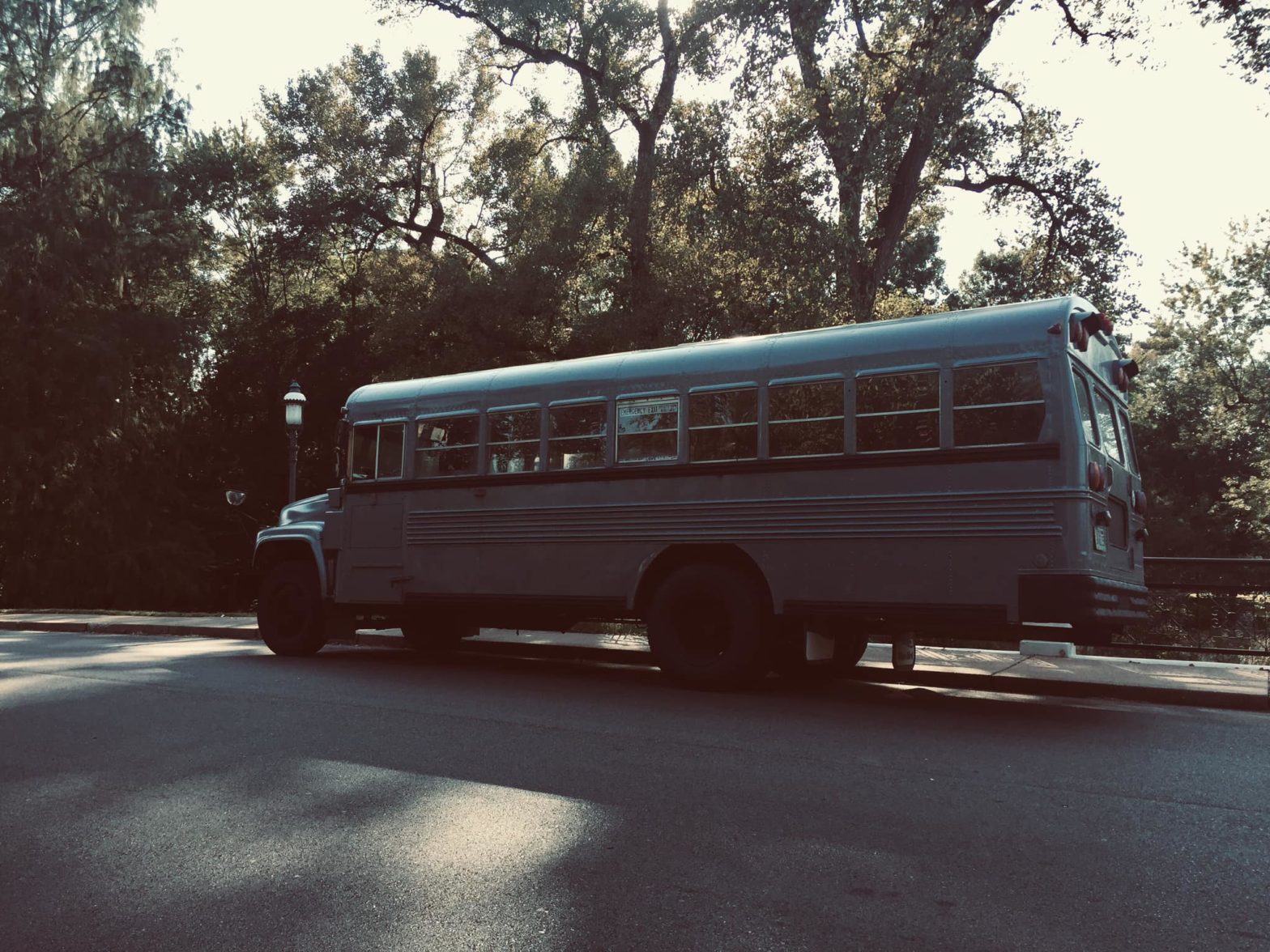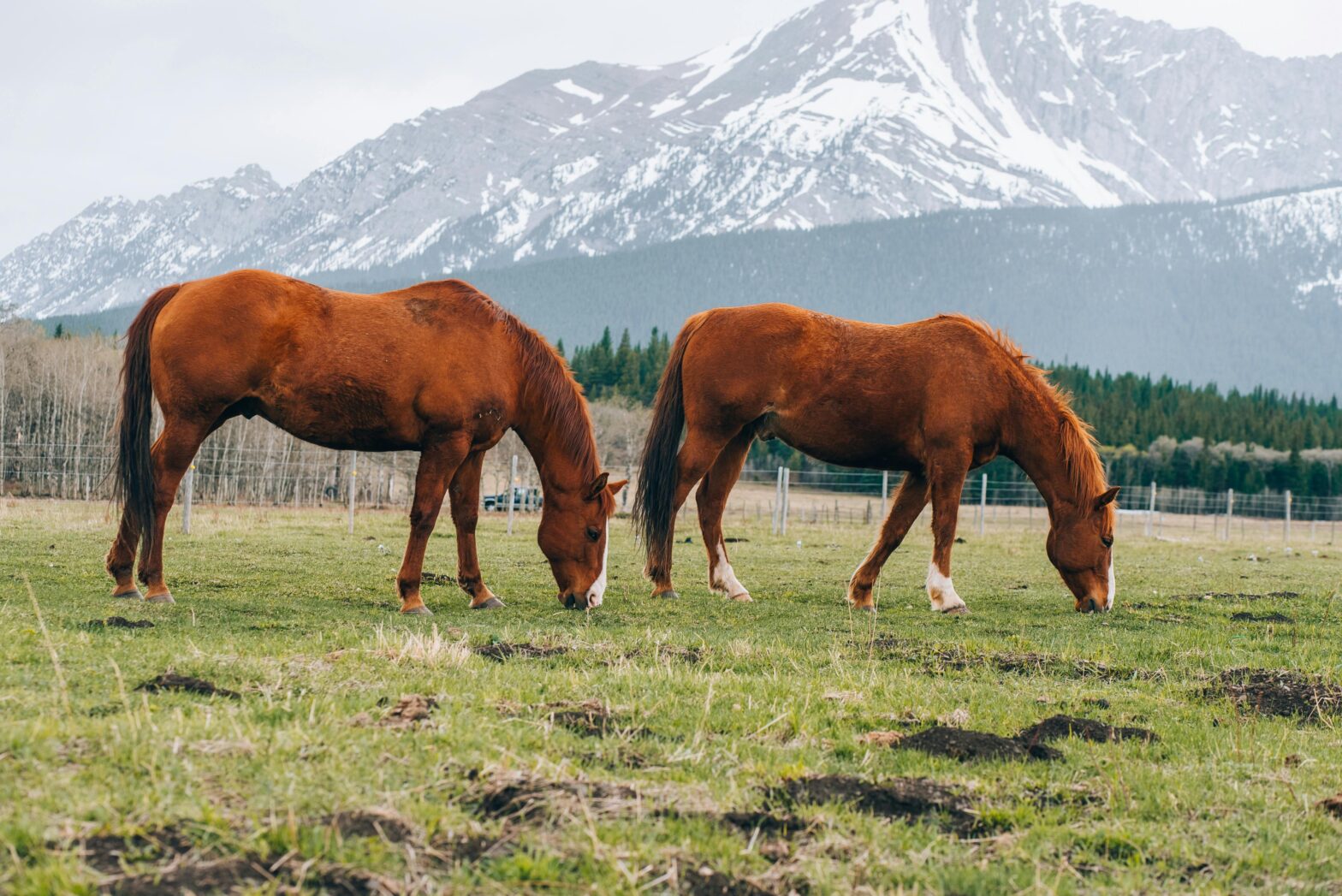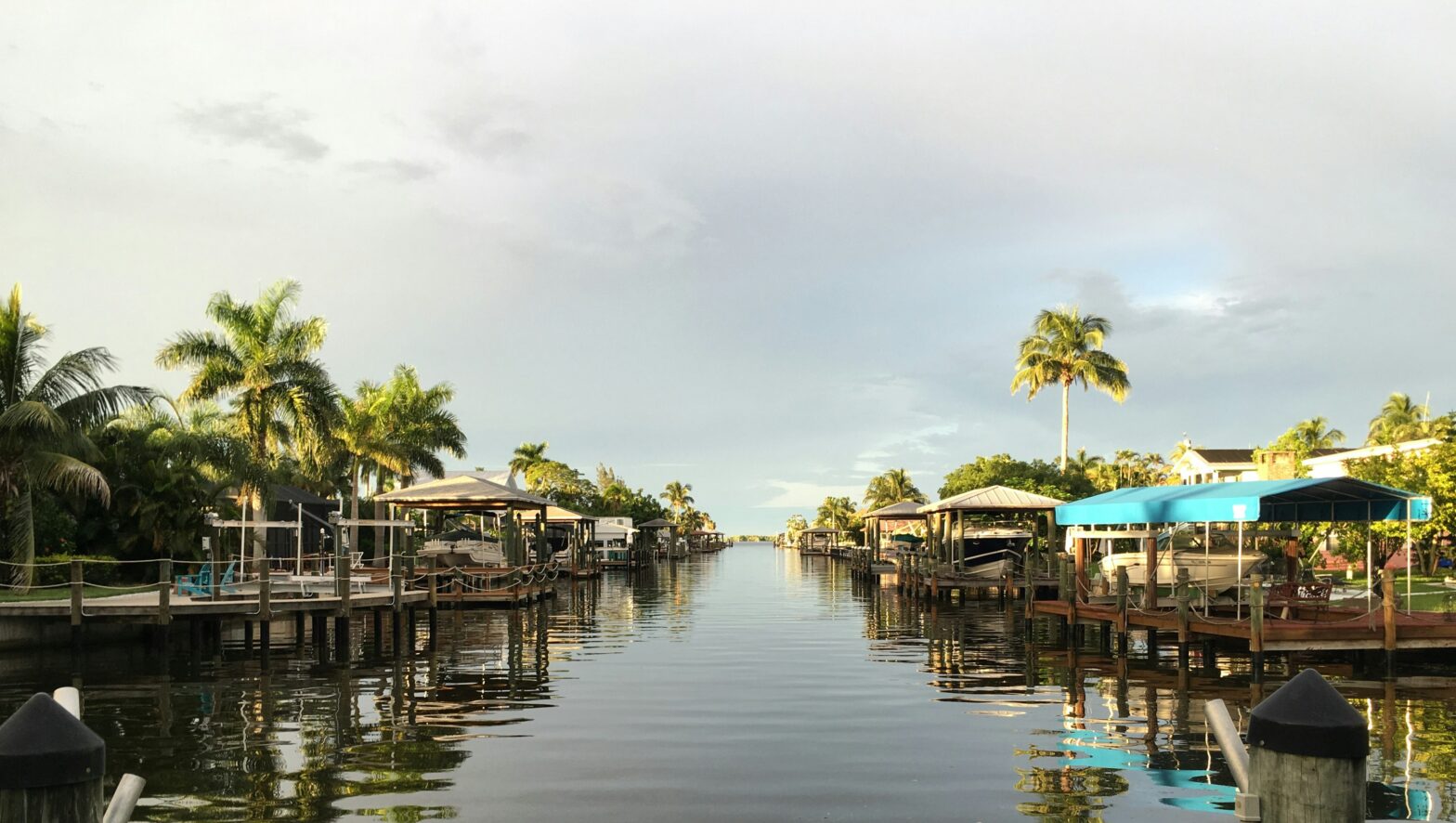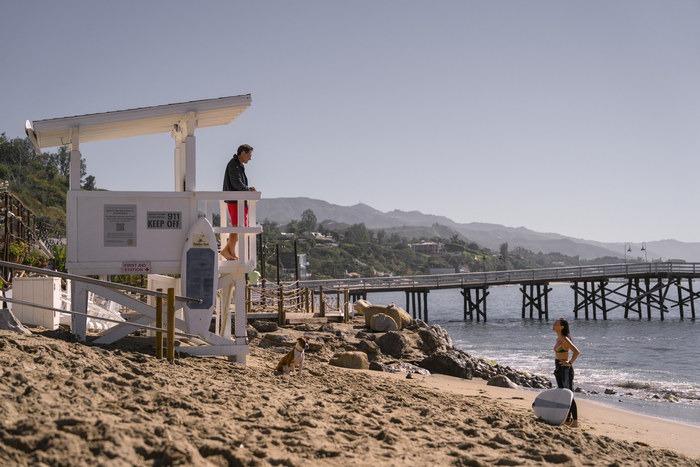With a love for travel and the outdoors, independent Hip Hop artist Loutribe Jigg, 27, took a major chance on living and purchased a school bus to convert into a mobile, tiny home.
Jigg started converting the bus into the ‘Tribe Skoolie’ in March 2020 at the beginning of the pandemic. He made sure to do all of his renovations in the heart of St. Louis city, hoping to inspire little boys and girls of color to live off-grid.
“What inspired me to build it was the fact that I love to travel and make connections with people from all walks of life,” Loutribe Jigg said. “I also wanted to show some representation since there’s not a lot of black people in the lifestyle.”
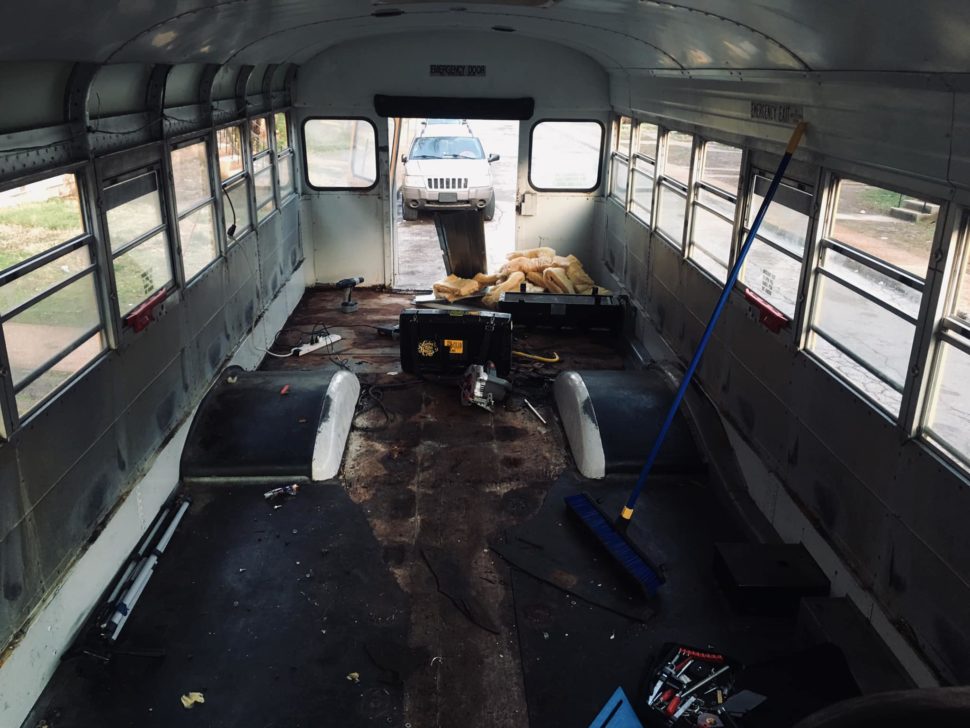
After over a year of renovations and $7,000 invested, Jigg still doesn’t feel like the Skoolie is complete. Thus far he has gutted the bus and added flooring, a wood ceiling, installed a kitchen and a bed with storage underneath, two skylights, installed a wall covering one side of the bus and added shelving for the kitchen.
“I honestly don’t think it’ll ever be complete with the way that my mind is set up,” he said. “I always think of new ways I want to change it.”
Living off-grid has provided a lot of benefits to the young artist and his family. One of the biggest changes is enjoying the freedom of not having to pay rent.
“I wanted to get out of paying rent and other bills, so I could put more money towards my passions and living my life,” he said.
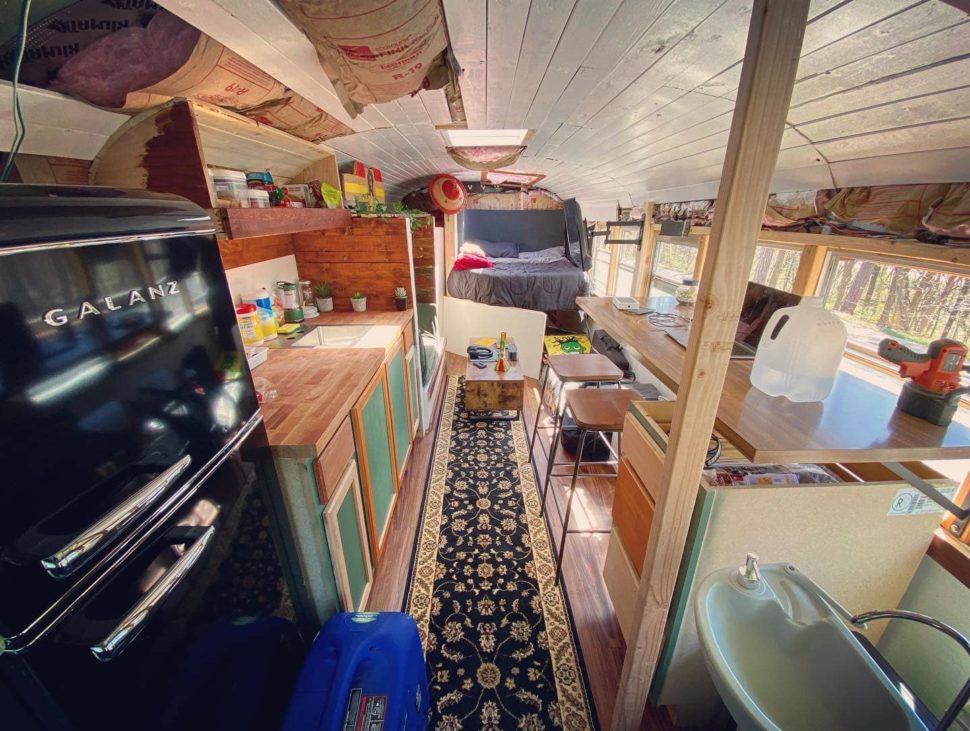
Being a free-spirited person, Jigg also enjoys being about to just pick up and go into nature. With the Skoolie, Jigg can pull up to any location to vibe or create at any given moment. While parking in local parks, he often encountered fans and admirers who yell out to the parked bus as they pass.
“I’m the type of person who frequently needs a change in scenery because It helps me with new ideas,” he said. “So whenever I felt blocked, I’d hop on the bus and drive somewhere to chill. Parks are always my favorite.”
Jigg also believes living off-grid provides a fresh perspective on life due to how different it truly is compared to regular life.
“I’ll say another benefit is the fact that you get to learn what life is like outside the ‘normal’ routine of society,” he said. “You tend to look at life from a different angle because you’re just moving differently.”
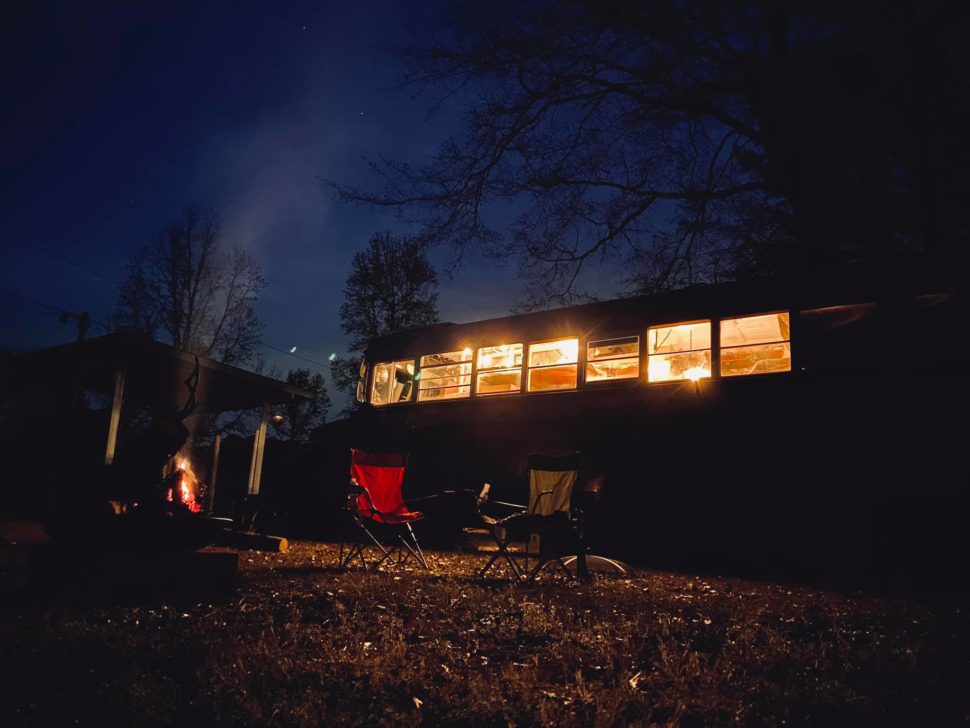
Although it has its advantages, Loutribe Jigg has noticed a few things that make living off the grid a bit rough. One of the main peeves is the lack of running water, which leads to having to refill water jugs throughout the day.
Additionally, he says it can get lonely and that a lot of people underestimate the immense solitude that can accompany living off the grid.
“A lot of people want to live off-grid until they make it there and realize that they need some stimulation from another human,” he said. “It’s cool to be alone at times, but we were designed to be there for each other. So it can get a little depressing.”
After finding out his partner was expecting, Jigg returned to apartment life as he awaited his second child. However, he plans to continue living off-grid at a later date and is planning on converting the Skoolie into a mobile store and office for his Loutribe brand.
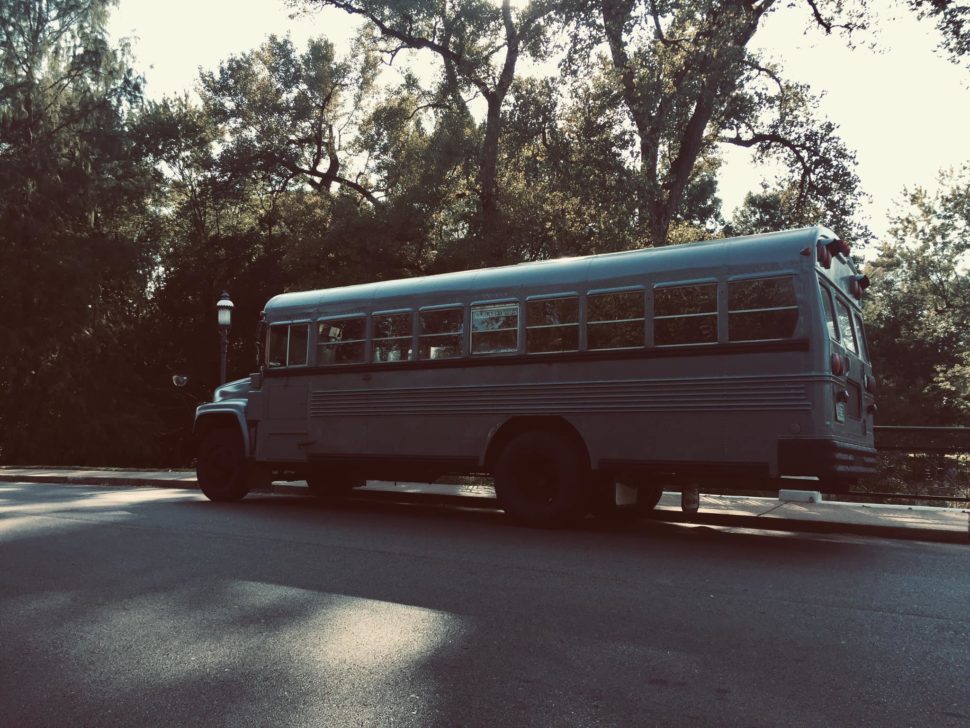
“I’m going fully self-sustainable and living off of the land,” he said. “I’m going to continue to inspire others to get into the lifestyle, and even host some hands-on activities related to living off-grid and self-sustainability, on my land.”
When it comes to off-grid living, Jigg encourages everyone to do in-depth research into the lifestyle before taking the leap to ensure it is the best decision for them.
“Practice living off-grid before you just jump in, because for some people it can be hell, and not the peace that they were looking for,” Jigg said.
